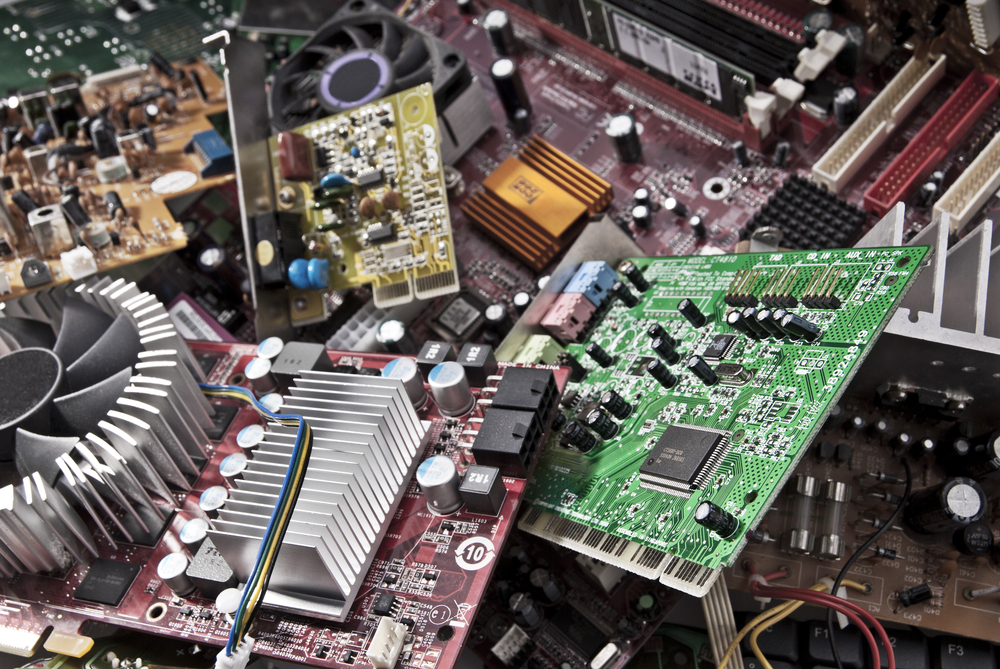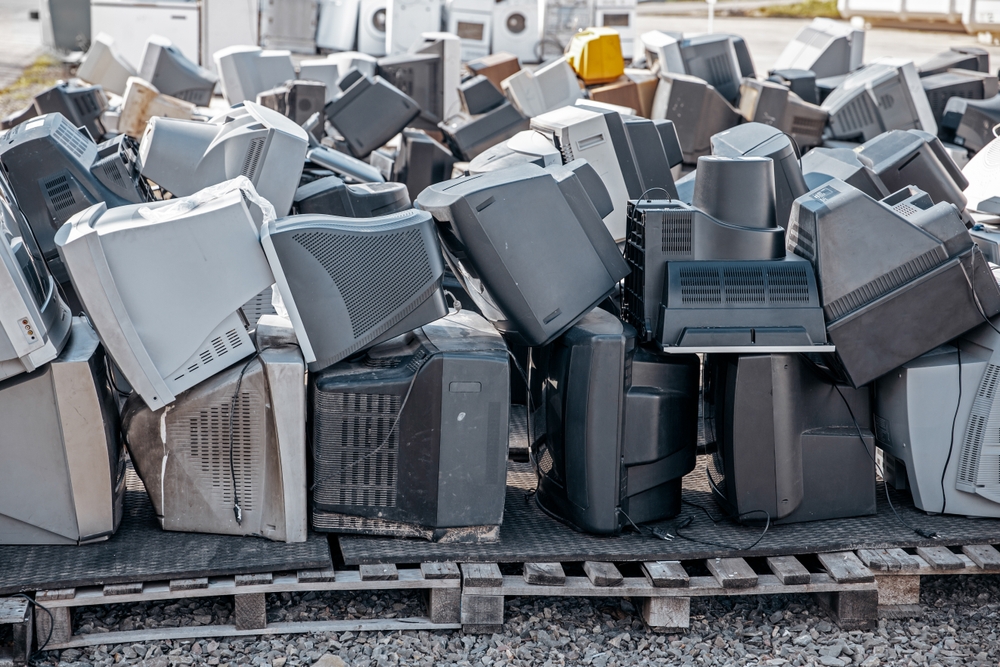Precious metals in electronics are often overlooked, yet they play a vital role in powering the devices we use every day. From smartphones and laptops to household appliances, gold, silver, and palladium are hidden within circuit boards and connectors, providing unmatched conductivity and durability. As technology advances and demand for electronics increases, so too does the need to manage electronic waste responsibly. This is where scrap metal recycling becomes essential. Instead of allowing valuable materials to sit unused in landfill, recycling ensures these precious metals are recovered and placed back into productive use. Not only does this conserve natural resources, but it also reduces greenhouse gas emissions and minimises the environmental impact of mining. For Melbourne households and businesses, embracing e-waste and selling scrap metal is a practical step towards sustainability, offering both economic and environmental benefits while supporting a stronger circular economy.

The Role of Precious Metals in Modern Electronics
Precious metals are essential to the function and reliability of modern electronics. Unlike base metals, materials such as gold, silver, palladium, and platinum offer superior conductivity, durability, and resistance to corrosion, making them indispensable in everything from smartphones and laptops to medical equipment and automotive electronics. Their unique properties ensure that devices can perform at high speeds while maintaining long-term reliability.
Gold is prized for its resistance to tarnish, which is why it is commonly found in connectors and circuit boards. Silver, the most conductive metal, is widely used in switches, solder, and printed circuit boards where fast data transfer is critical. Palladium plays a vital role in multilayer ceramic capacitors, which regulate voltage in nearly every electronic device.
- Even small amounts of these metals, when combined across millions of devices, represent significant economic and environmental value if recovered through recycling.
By embedding precious metals into electronics, manufacturers enhance performance and durability. However, this also creates a pressing need for efficient recycling systems. Recovering these metals through responsible scrap metal recycling not only conserves finite resources but also supports Melbourne’s efforts to reduce electronic waste and build a sustainable circular economy.

Gold in Electronics: The Standard of Reliability
Gold is one of the most valuable metals in the electronics industry, not only because of its rarity but also due to its unique physical properties. Known for its exceptional resistance to corrosion and oxidation, gold provides long-lasting conductivity in delicate components where reliability is crucial. This is why it is extensively used in connectors, switches, and bonding wires within smartphones, computers, and telecommunications systems.
The metal’s malleability allows it to be drawn into ultra-fine wires or deposited as thin coatings without compromising strength. Even in trace amounts, gold ensures dependable performance in high-stress environments, from data centres to aerospace applications. This durability is a key reason why electronic devices have become more compact and efficient while maintaining speed and accuracy.
- For instance, gold-plated connectors in mobile phones and laptops maintain signal integrity, reducing the likelihood of data loss or system failures.
Given its high value, recovering gold from end-of-life electronics is an important part of scrap metal recycling. By extracting and reusing gold, recycling companies in Melbourne help conserve natural resources, reduce mining impacts, and minimise electronic waste entering landfill. This circular approach transforms waste into a valuable resource, supporting both economic and environmental sustainability.
Silver in Electronics: The Unsung Workhorse
Silver may not carry the same prestige as gold, but it is indispensable in modern electronics due to its superior electrical conductivity. Often called the most conductive of all metals, silver ensures efficient current flow in a wide range of devices, from household appliances to advanced medical equipment. Its ability to minimise resistance makes it ideal for applications where speed, accuracy, and reliability are non-negotiable.
Within electronic devices, silver is commonly found in printed circuit boards, switches, and conductive inks used for flexible electronics. These applications highlight its versatility, as it enables the creation of lightweight yet powerful components that meet the demands of today’s digital world. Silver’s use in soldering alloys and batteries also underscores its critical role in keeping essential systems operational.
Although silver is more prone to tarnishing than gold, its exceptional conductivity outweighs this drawback. For this reason, it remains the material of choice in high-performance electronics, renewable energy systems, and even electric vehicles.
When electronics reach the end of their life cycle, recovering silver through scrap metal recycling prevents valuable resources from going to waste. By reintroducing silver into the production cycle, recyclers help reduce the environmental impact of mining while supporting the global push towards a circular economy.
Palladium’s Role in Electronics: The Hidden Powerhouse
Palladium may be less recognised than gold or silver, but it has become increasingly vital in the world of electronics. Known for its excellent conductivity and resistance to corrosion, palladium is frequently used in multilayer ceramic capacitors, connectors, and plating materials that keep electronic devices functioning reliably. These components are crucial in smartphones, computers, and automotive electronics, where compact design and consistent performance are essential.
What makes palladium especially valuable is its role in capacitors, which regulate the flow of electricity within devices. As technology advances, capacitors have become smaller yet more powerful, and palladium enables this miniaturisation without sacrificing efficiency. Its durability under stress and resistance to tarnish further reinforce its importance in modern electronics.
Palladium is also a critical material in emerging technologies such as 5G networks, renewable energy storage, and electric vehicles. Its versatility ensures it will continue to play a major role as global demand for advanced electronics grows.
Recovering palladium through scrap metal recycling not only reduces reliance on environmentally damaging mining but also supports sustainability. By reclaiming palladium from e-waste, recyclers in Melbourne contribute to resource conservation, reduce landfill waste, and strengthen the circular economy that benefits both businesses and the environment.
Environmental Impact of Recovering Precious Metals
Recovering precious metals from electronics has a profound environmental benefit, particularly when compared to traditional mining. Mining for gold, silver, and palladium is resource-intensive, often involving significant land disturbance, high water consumption, and the release of greenhouse gas emissions. By recycling metals already embedded in devices, we can reduce the need for destructive extraction and conserve finite natural resources.
Electronic waste is one of the fastest-growing waste streams globally, and without responsible recycling, much of it ends up in landfill where toxic substances can leach into soil and waterways. Extracting valuable metals through scrap metal recycling minimises this risk, ensuring fewer hazardous materials enter the environment.
Economic Value of Recycling Precious Metals
The recovery of precious metals from electronics is not only environmentally responsible but also economically rewarding. Gold, silver, and palladium are in high demand across global industries, and recycling ensures these metals are reintroduced into supply chains without the heavy costs of mining. This reduces reliance on volatile international markets while strengthening local economies.
In Melbourne, scrap metal recycling provides opportunities for businesses and households to benefit financially by diverting e-waste from landfill. The resale of recovered metals creates revenue streams for recycling companies, while also lowering manufacturing costs for industries that rely on these valuable materials.
Beyond direct profit, recycling precious metals supports job creation and stimulates the growth of Australia’s circular economy. Each recovered component contributes to a more resource-efficient society, where waste is transformed into wealth. This economic advantage complements the environmental gains, making recycling an essential practice for a sustainable and prosperous future.
Scrap Metal Recycling in Melbourne and Local Solutions
Melbourne offers a range of facilities dedicated to scrap metal recycling, making it easier for households and businesses to dispose of electronic waste responsibly. These centres specialise in safely extracting precious metals from e-waste, including gold, silver, and palladium, while ensuring hazardous materials do not enter landfill.
- Local recycling programs provide convenient drop-off points and collection services for residents and businesses alike.
By participating in these initiatives, the community helps conserve natural resources, reduce greenhouse gas emissions, and support a circular economy. Efficient metal recovery in Melbourne strengthens local industries and fosters a more sustainable approach to electronics disposal.
Do You Need to Sell Scrap Metal?
Look no further than Metal Men Recycling for your metal recycling needs. Recovering precious metals from electronics is crucial for both environmental and economic sustainability. By recycling gold, silver, palladium, and other valuable metals, Melbourne households and businesses can reduce landfill waste, conserve finite resources, and lower greenhouse gas emissions. Scrap metal recycling not only safeguards ecosystems but also supports local industries, creates jobs, and strengthens the circular economy.
Get in touch by calling 03 5941 6677 or fill out our online contact form and we will get back to you.
Frequently Asked Questions (FAQ)
Which precious metals are commonly found in electronics?
Electronic devices typically contain gold, silver, palladium, platinum, and rhodium. These metals are used in circuit boards, connectors, capacitors, and other critical components due to their conductivity and durability.
Why are precious metals used in electronic devices?
Precious metals provide superior electrical conductivity, corrosion resistance, and long-term reliability, making them essential for high-performance electronics, from smartphones to medical devices.
How does recycling electronics benefit the environment?
Scrap metal recycling conserves finite resources, reduces greenhouse gas emissions, prevents e-waste from entering landfill, and lowers the environmental impact of mining precious metals.
Is recycling precious metals economically worthwhile?
Yes. Recovering metals like gold, silver, and palladium generates revenue, supports local recycling businesses in Melbourne, and reduces production costs for manufacturers using recycled materials.
Can small amounts of metals in devices make a difference?
Absolutely. Even trace amounts accumulate across millions of devices, and efficient recovery through recycling yields significant environmental and economic benefits.

